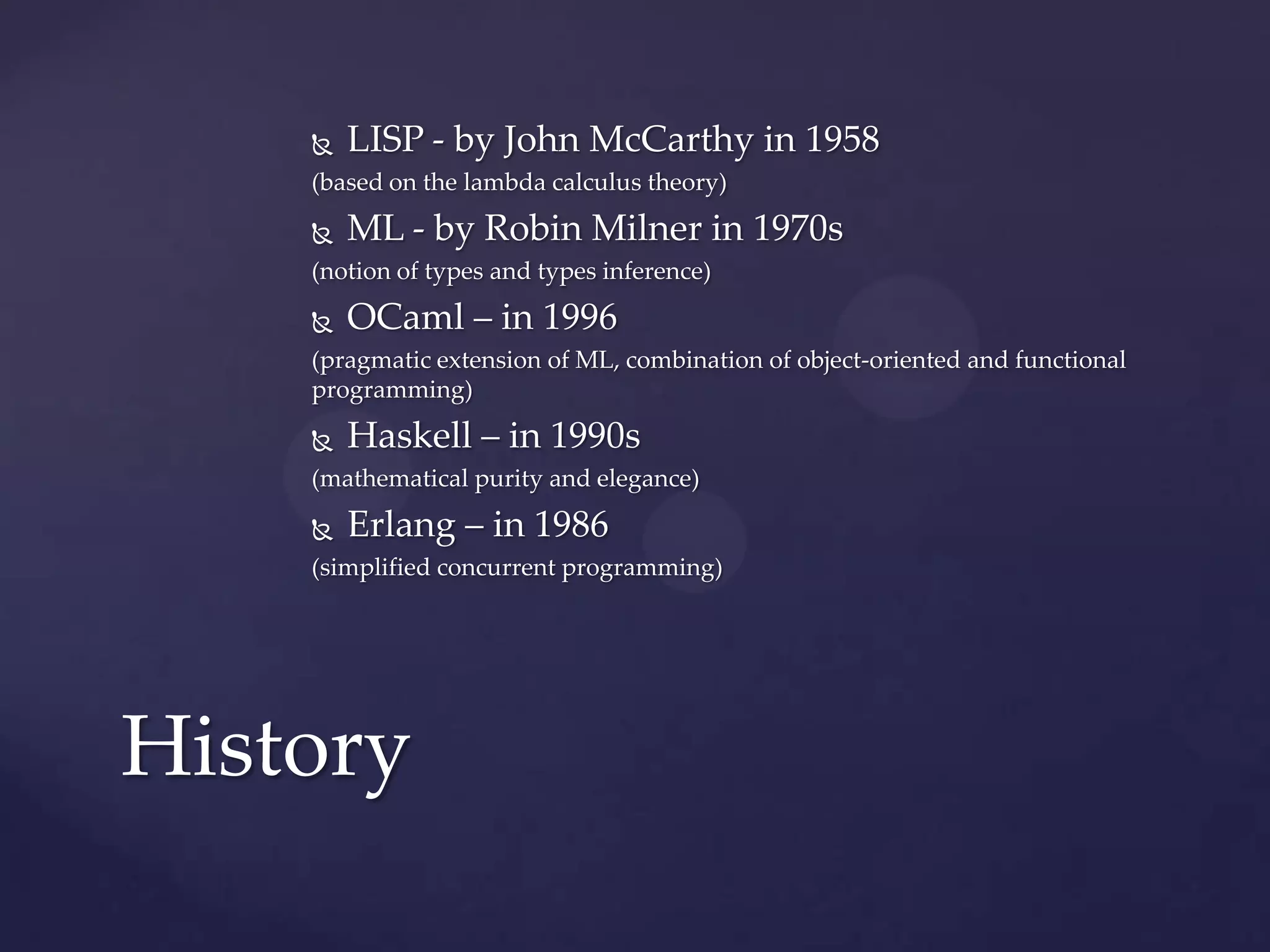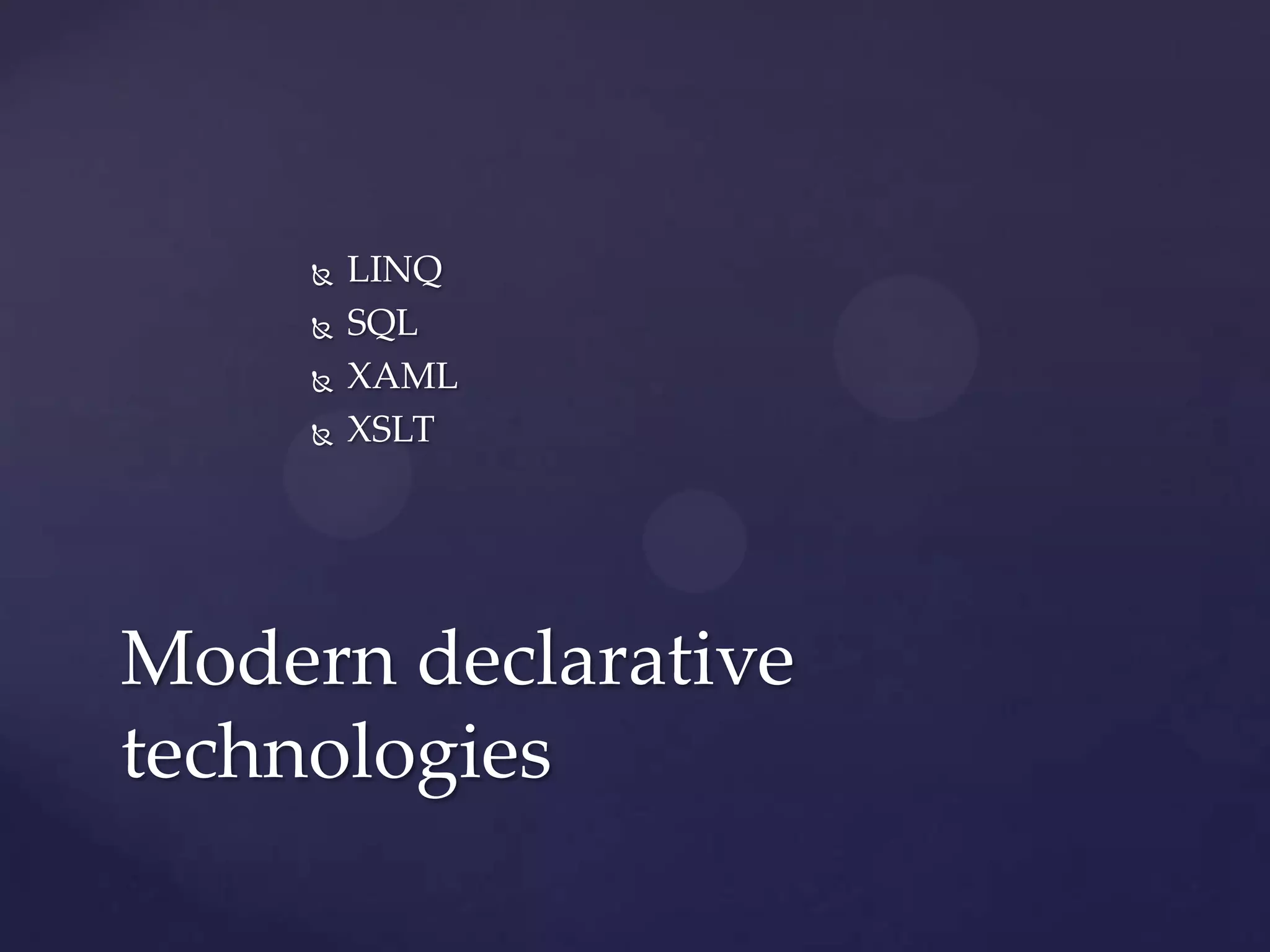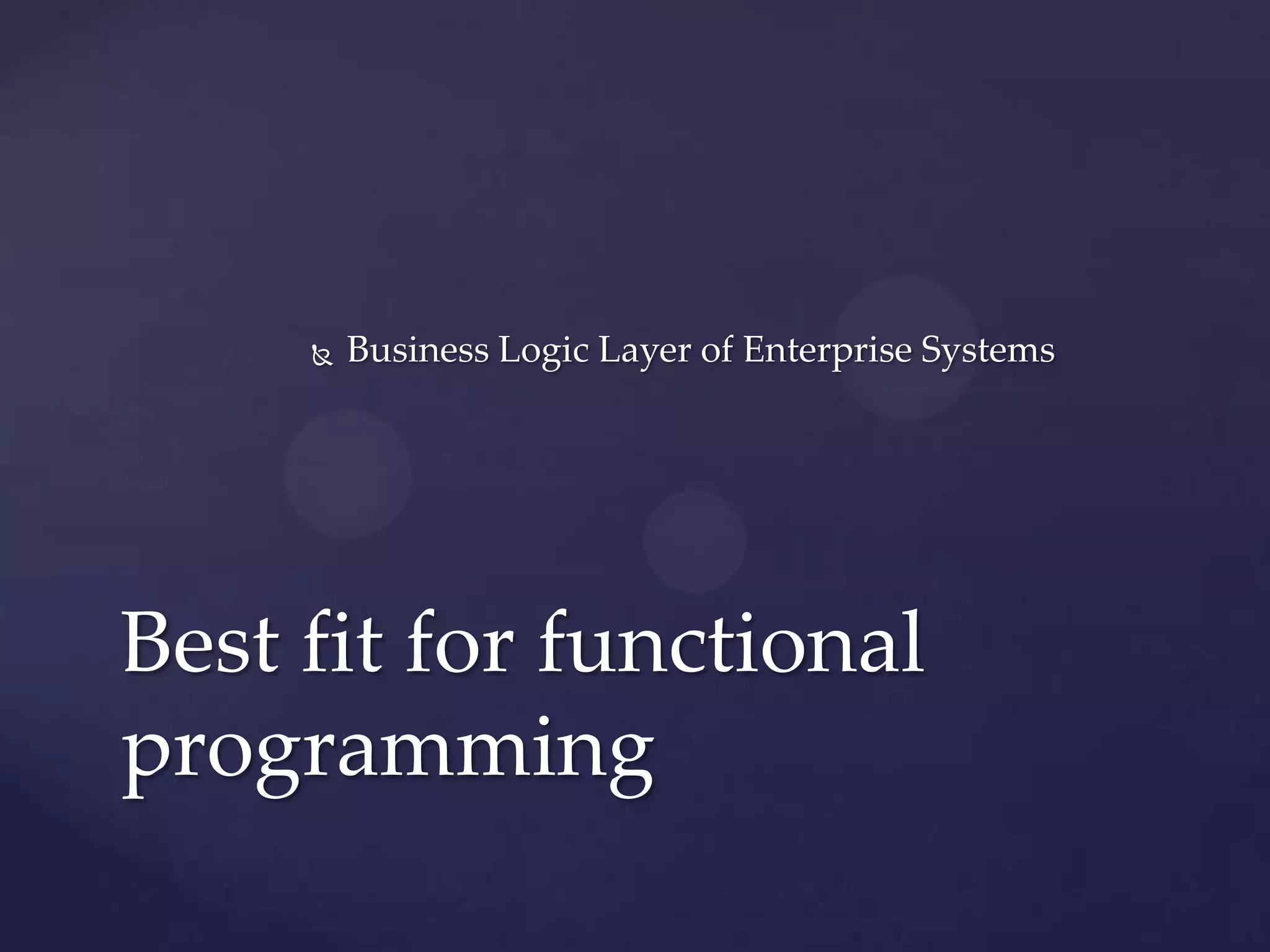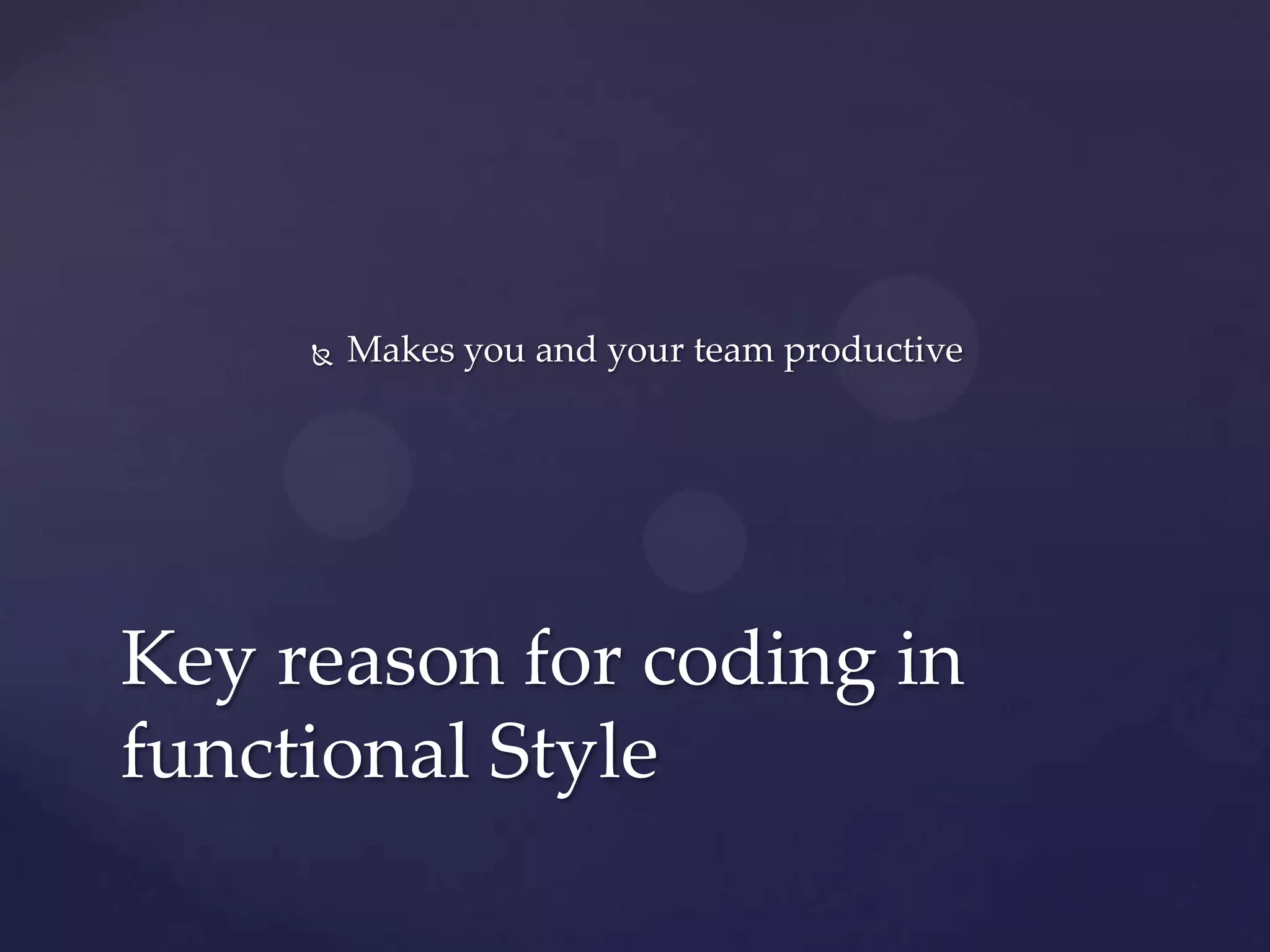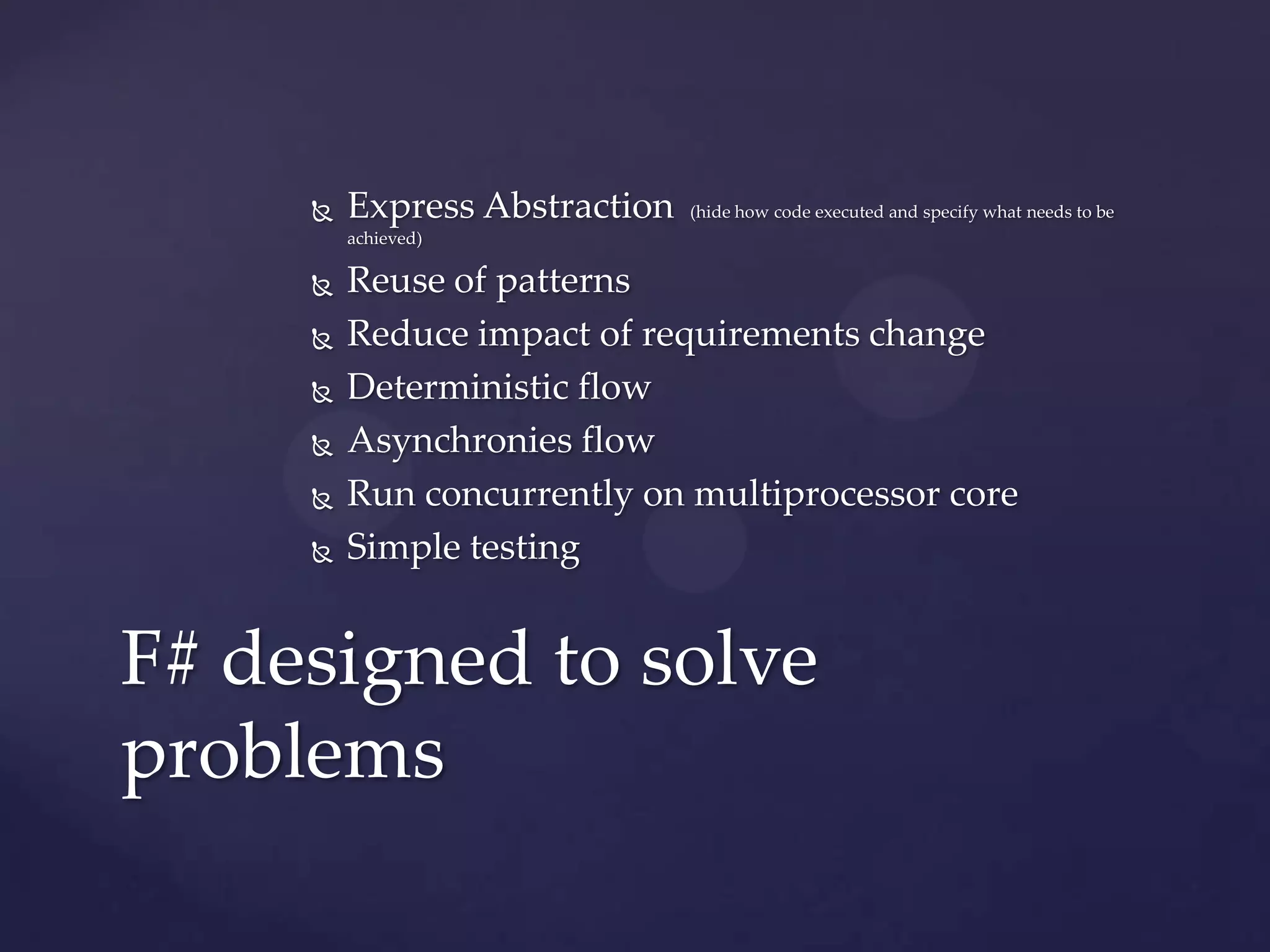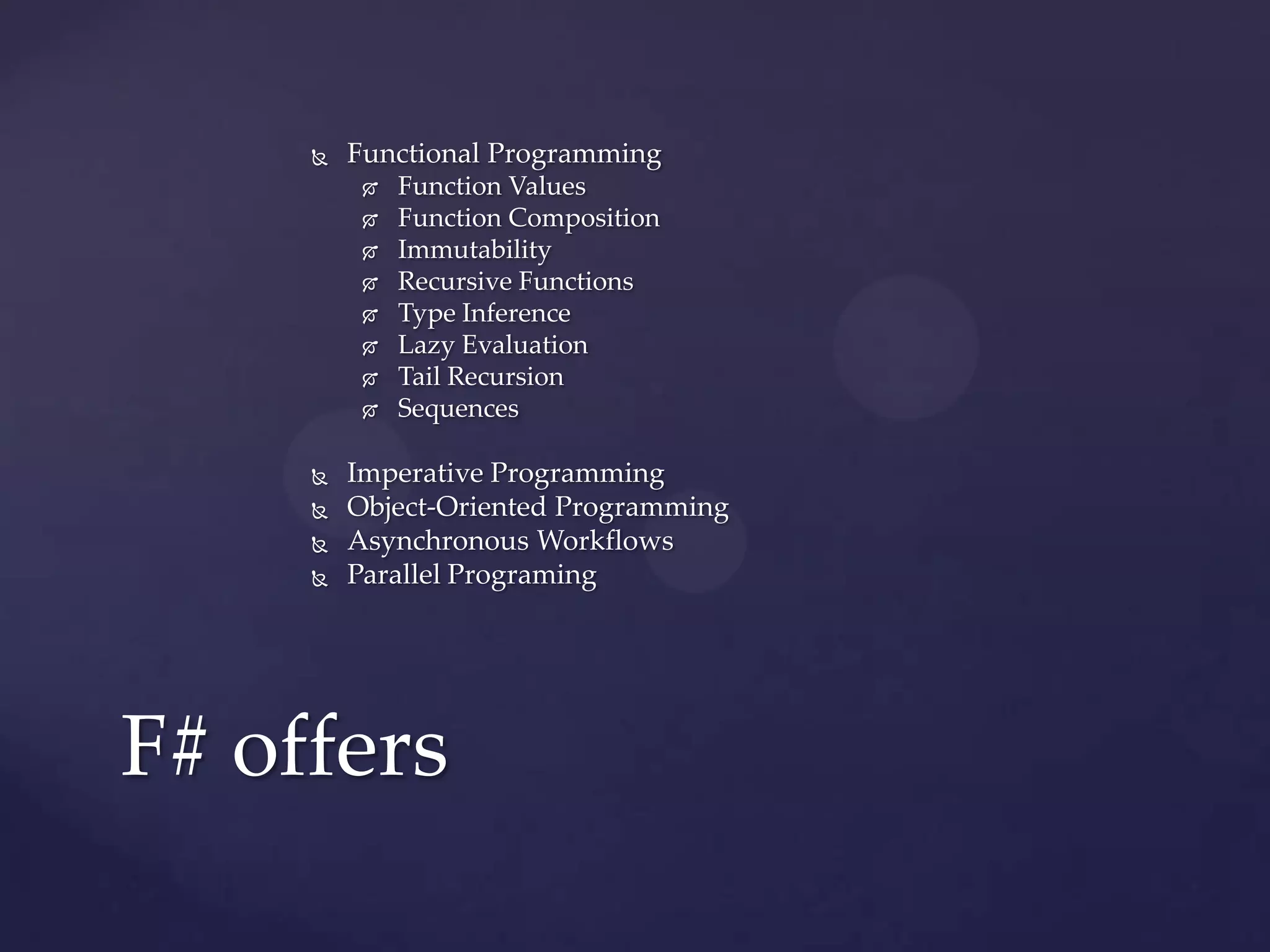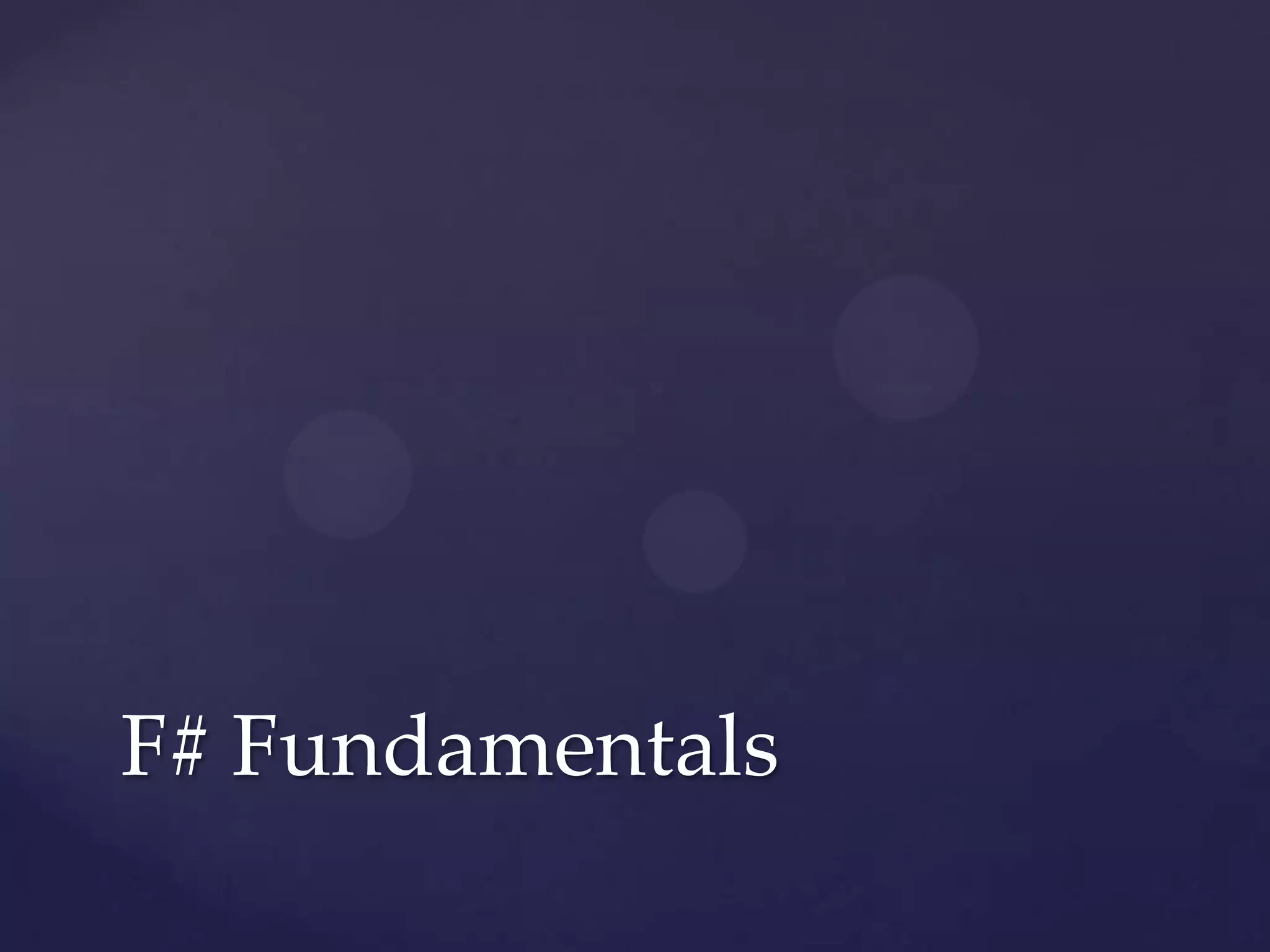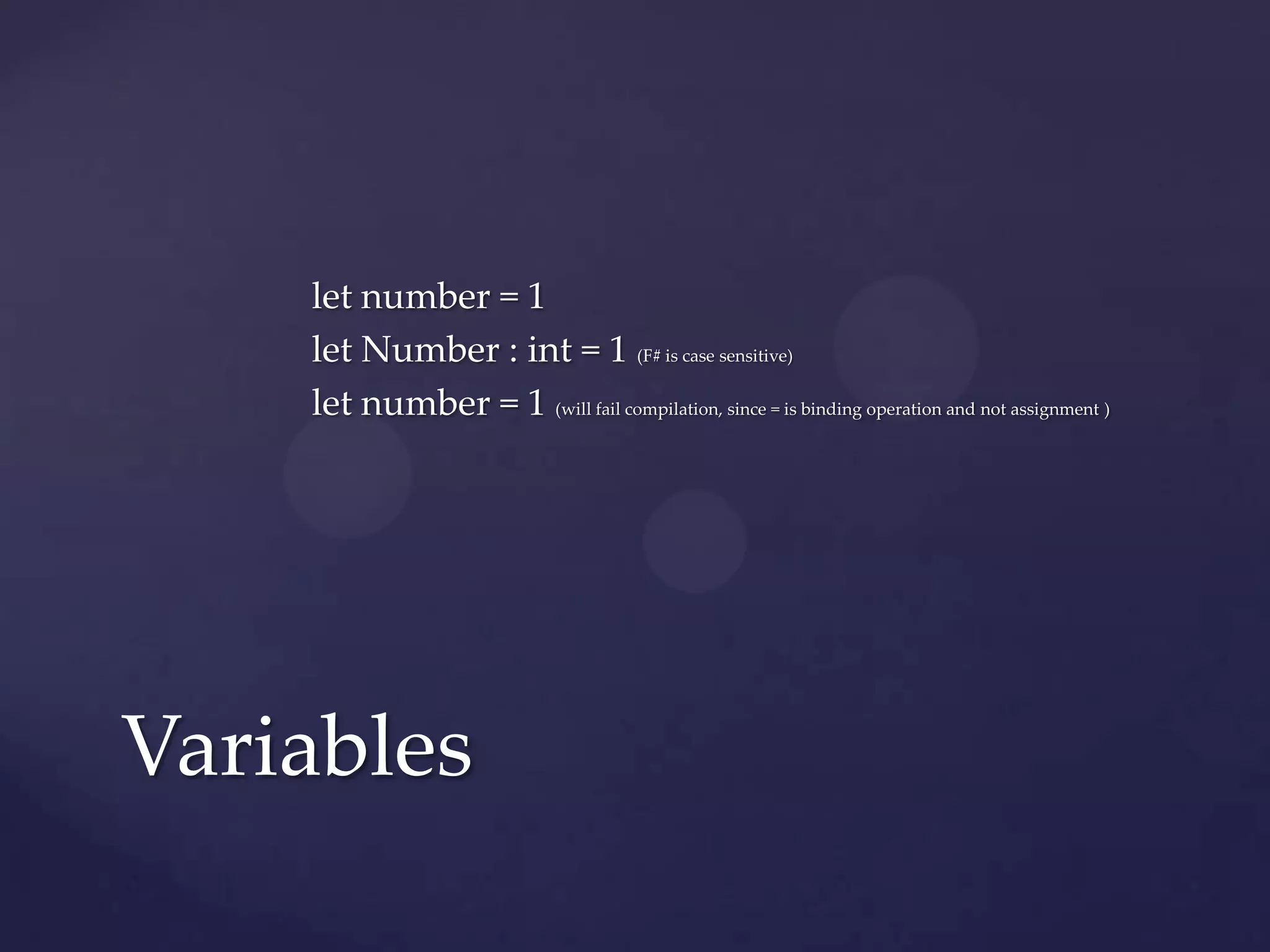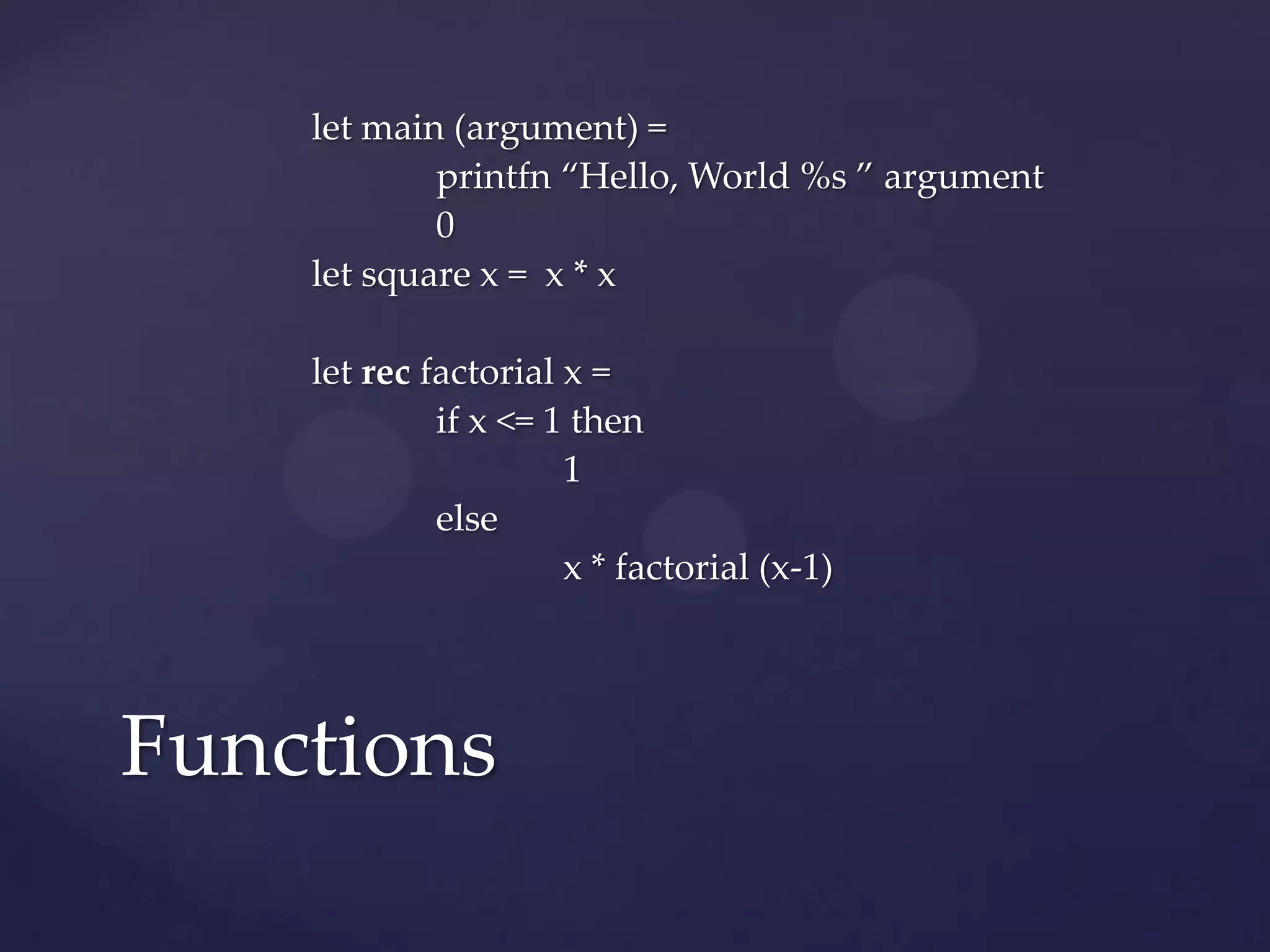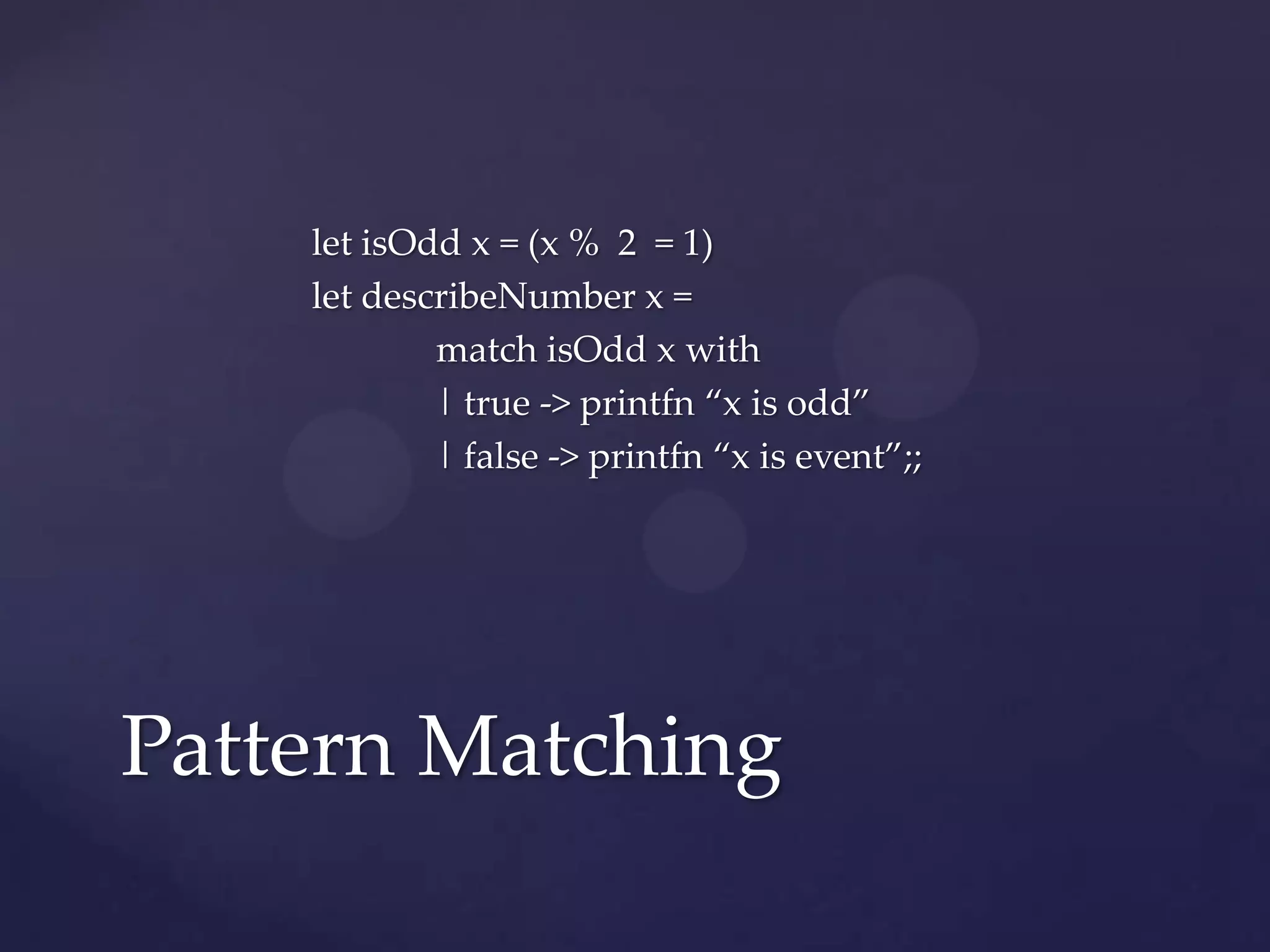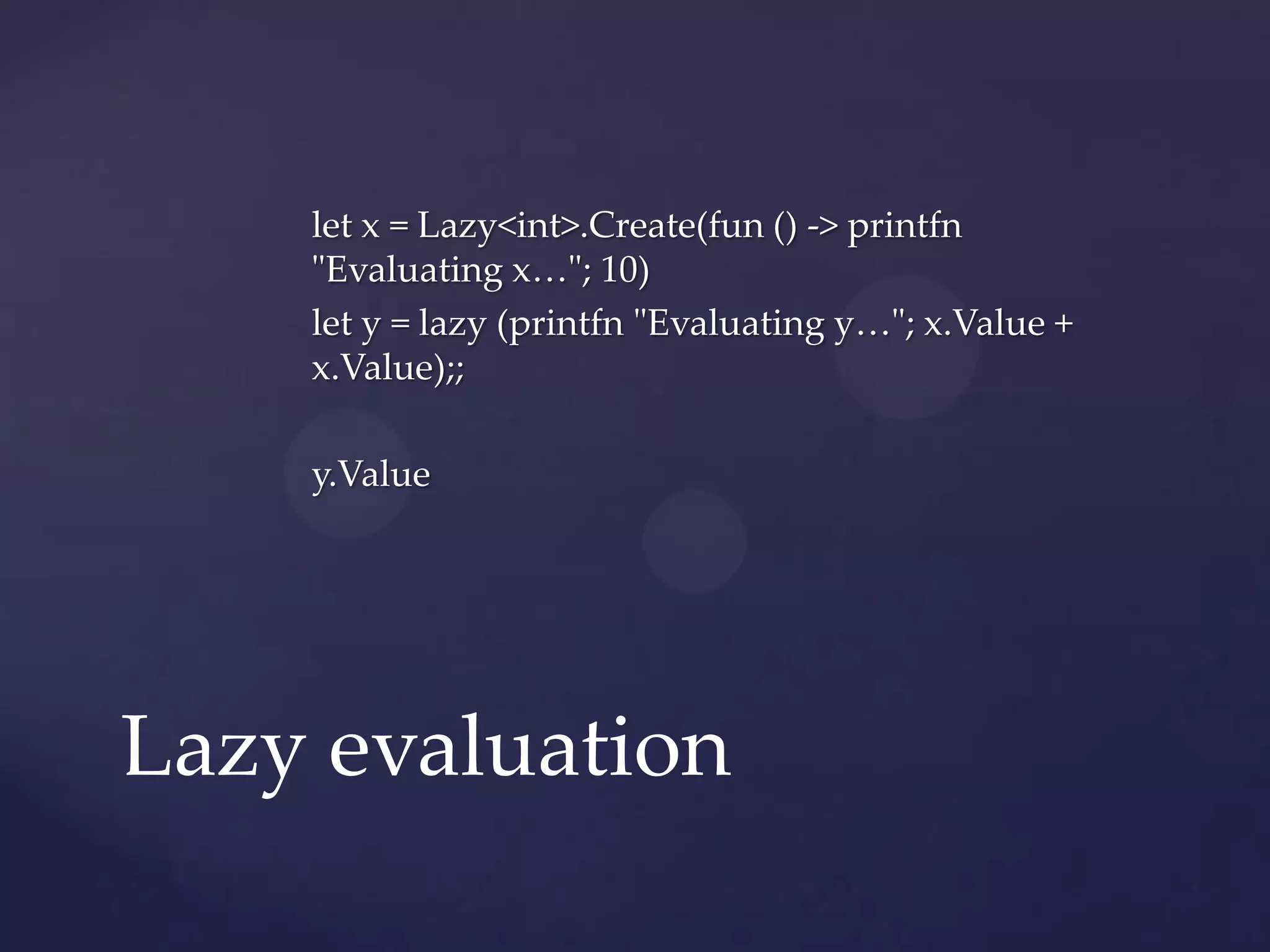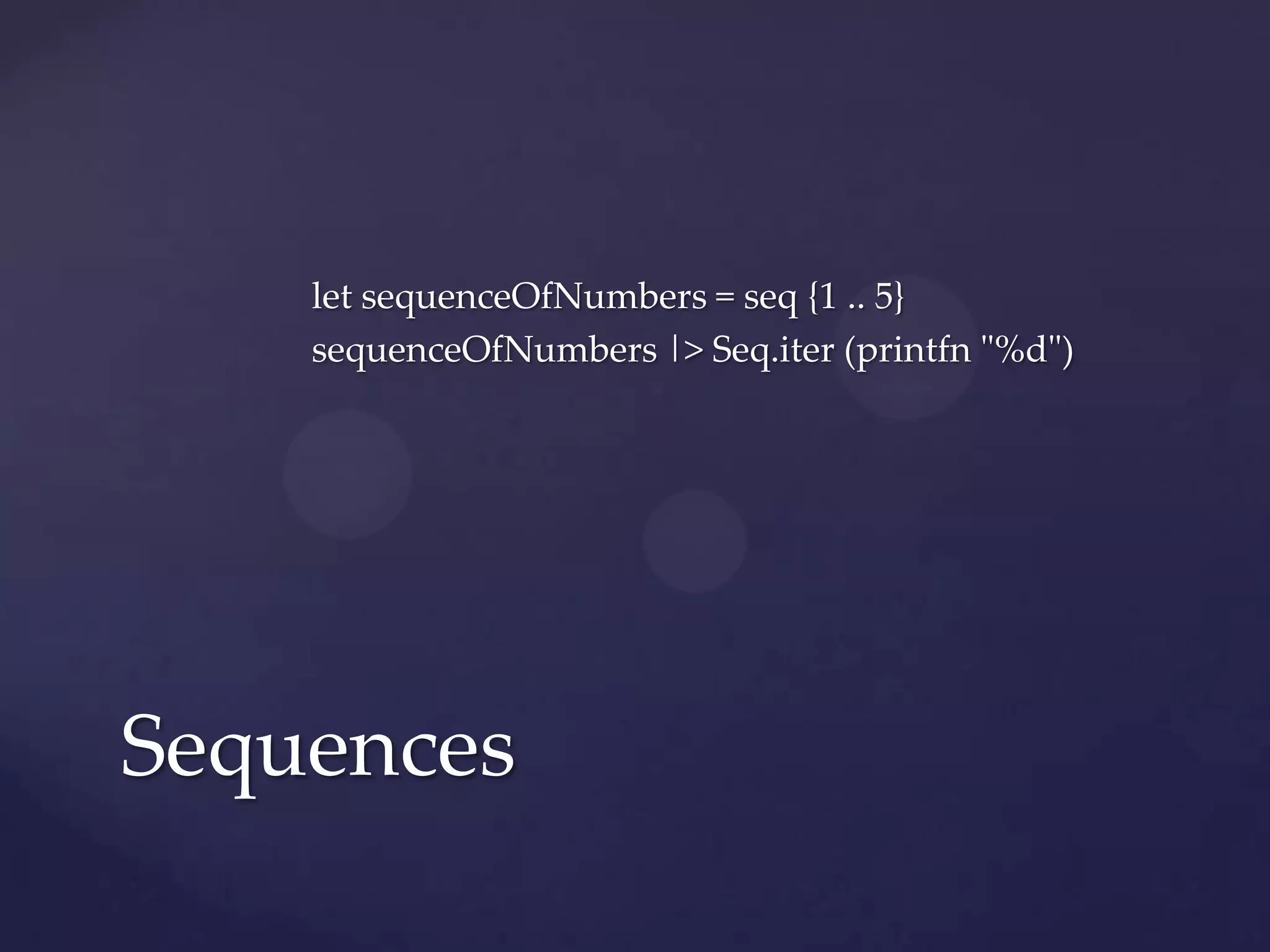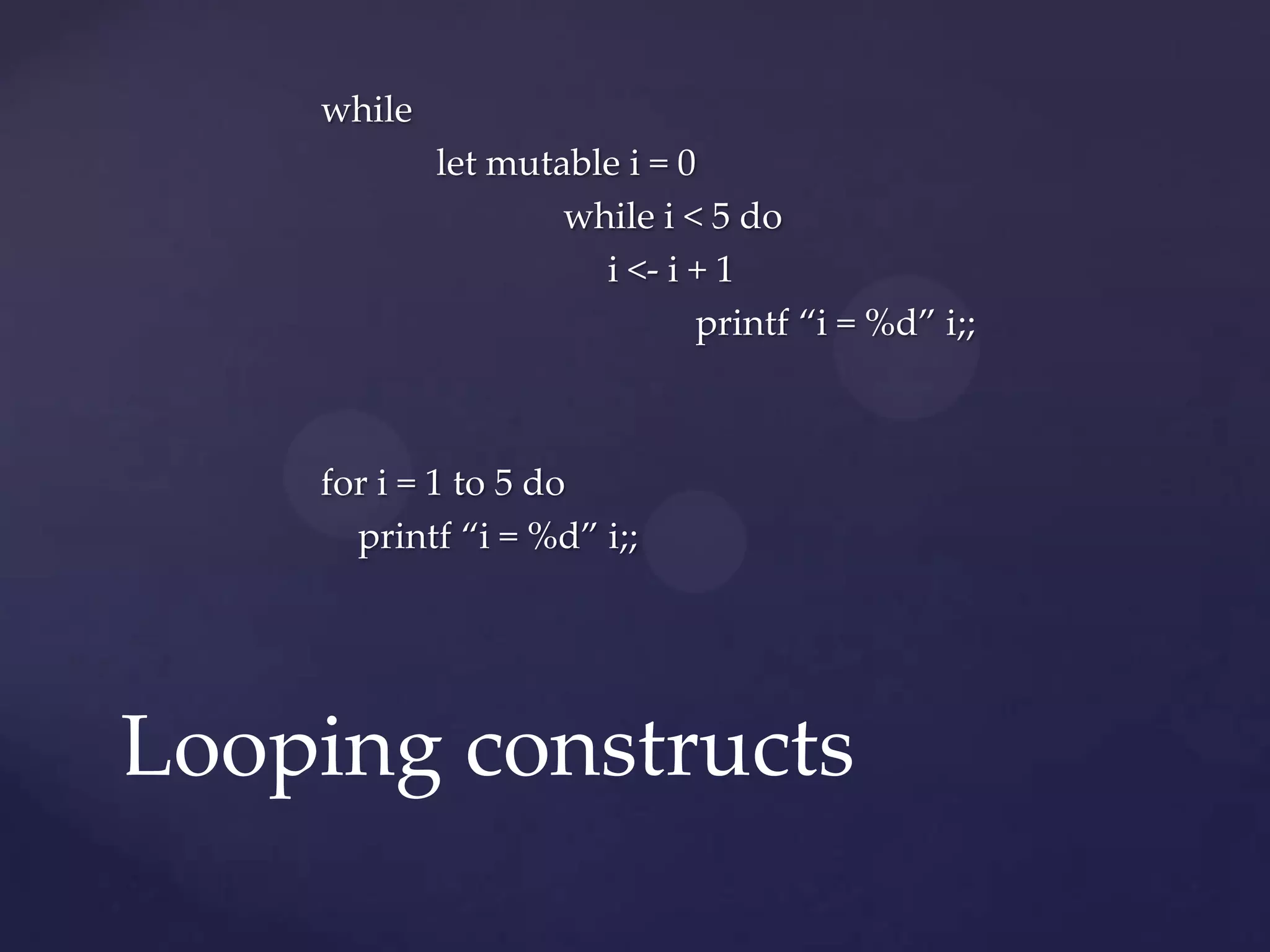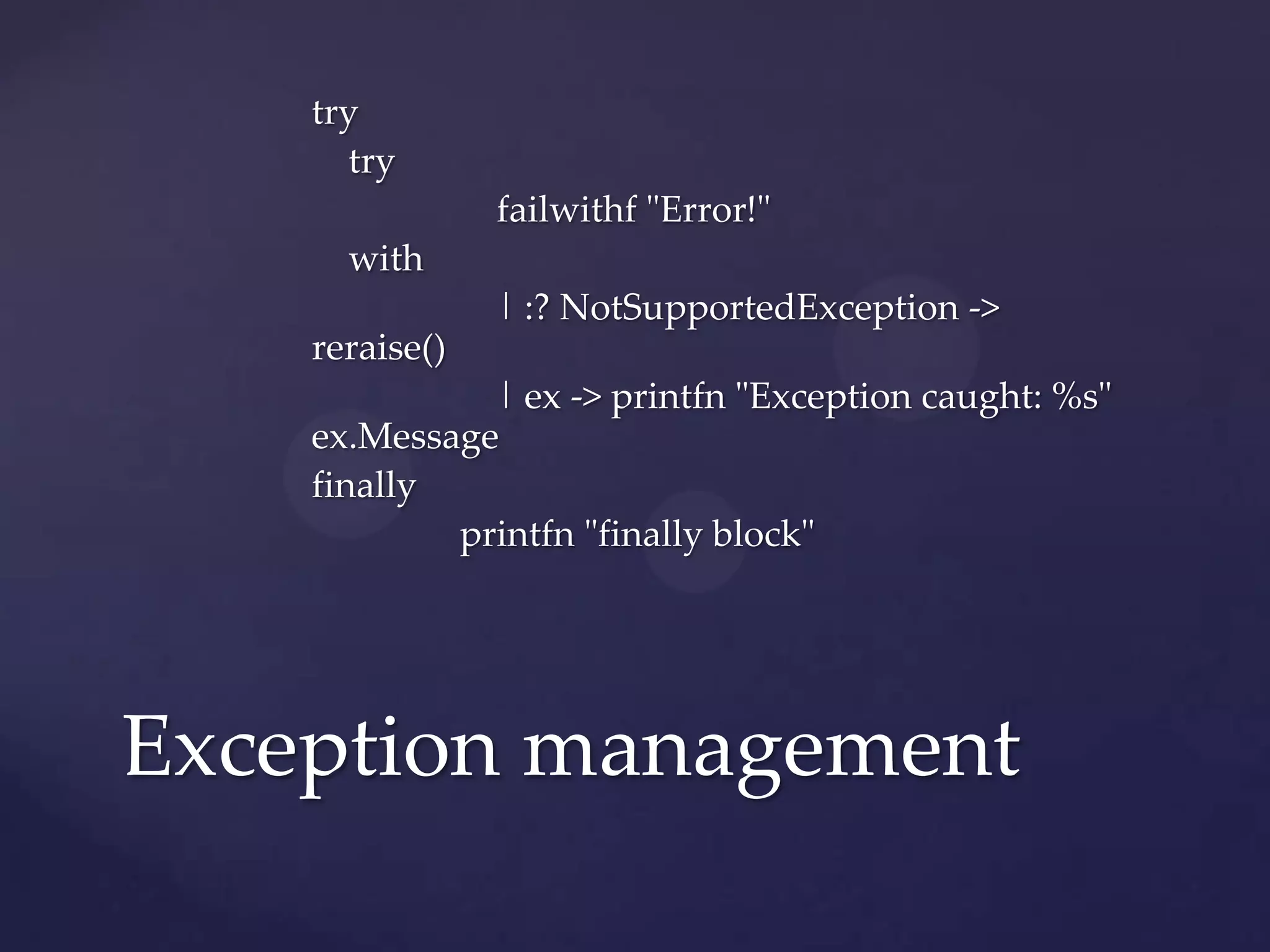This document contains an agenda for an introduction to the F# programming language. It begins with definitions of functional programming and a brief history of related languages like Lisp, ML, OCaml, and Haskell. It then covers key aspects of the F# language like functions, pattern matching, lazy evaluation, sequences, and looping constructs. The presentation aims to explain how F# offers both functional and imperative programming as well as asynchronous and parallel capabilities.
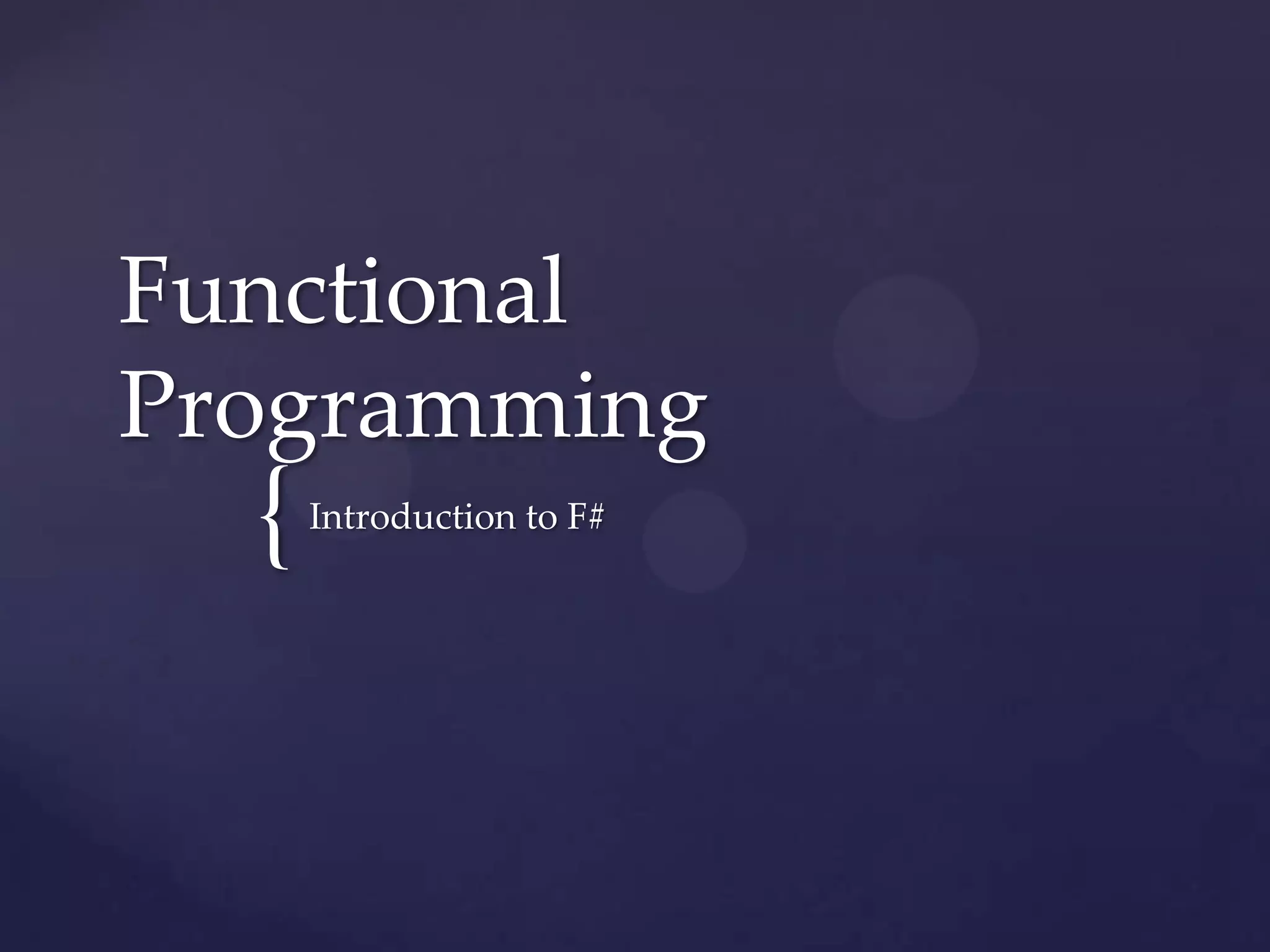

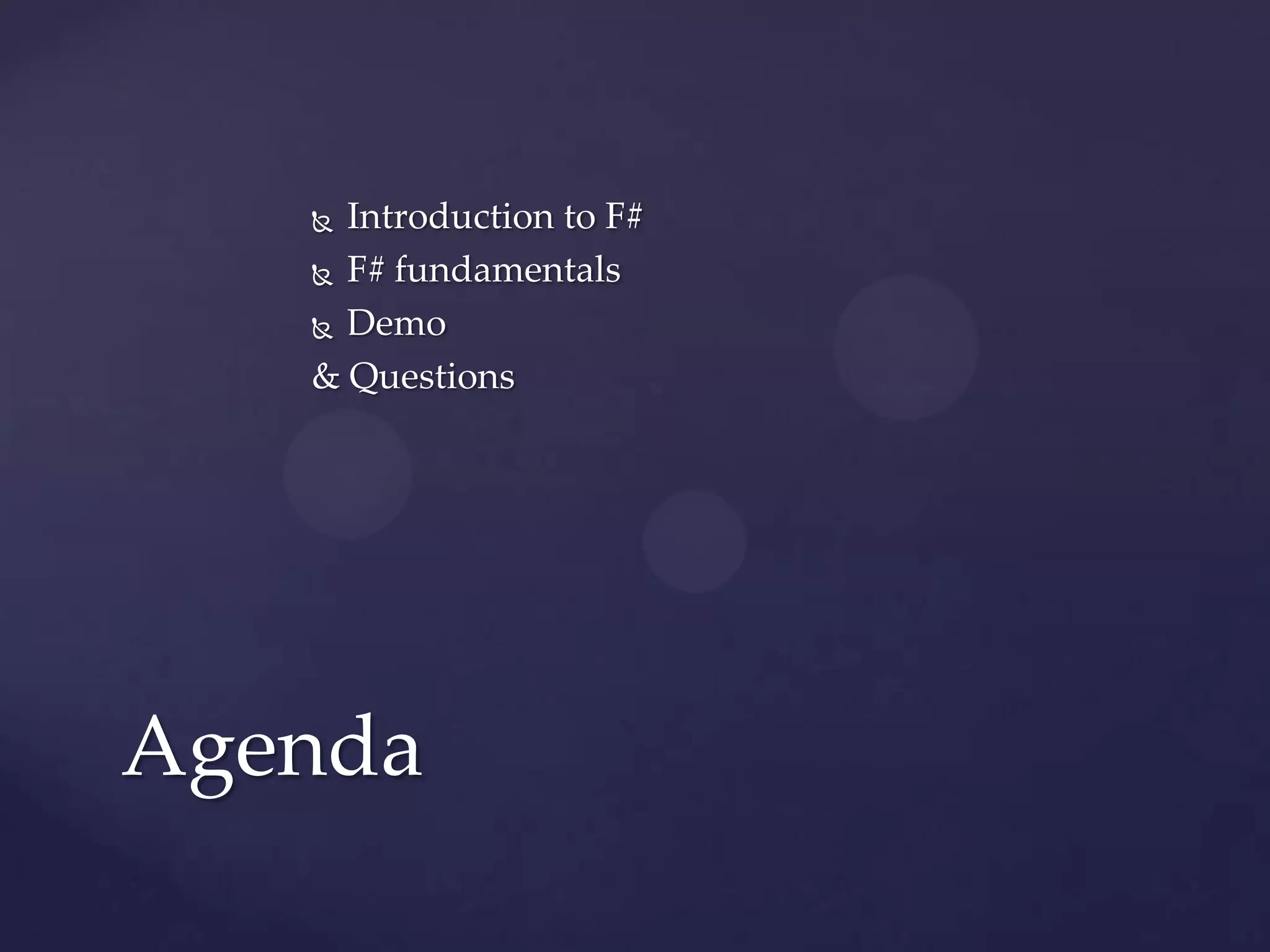
![ Functional programming is a style of
programming that emphasizes the evaluation
of expressions, rather than execution of
commands. The expressions in these languages
are formed using functions to combine basic
values. [Hutton ed. 2002]
Definition](https://image.slidesharecdn.com/functionalprogramming-fundamentals-120127183059-phpapp01/75/Functional-Programming-Fundamentals-4-2048.jpg)
